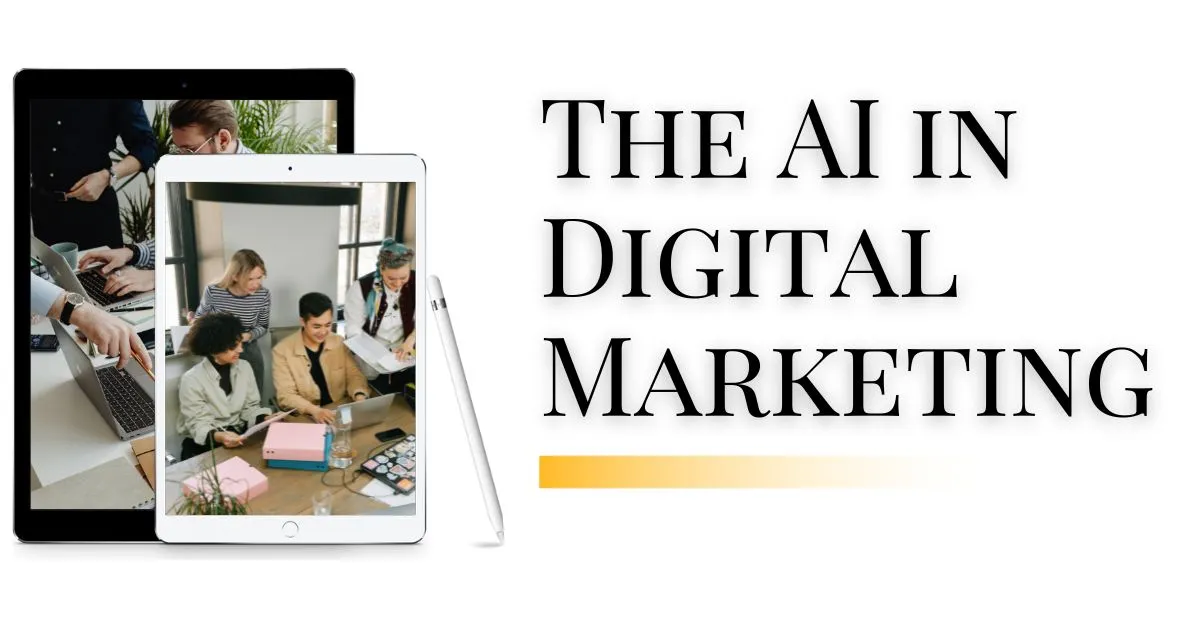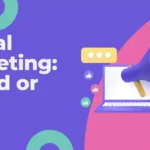Artificial Intelligence (AI) has emerged as a transformative force revolutionizing the landscape of digital marketing. In 2024, its integration has reshaped strategies, redefined consumer engagement, and reimagined the very essence of marketing. Let’s delve into how AI is orchestrating this paradigm shift.
Data-Driven Insights and Decision-Making:
AI’s prowess lies in its ability to process vast volumes of data swiftly and extract actionable insights. In digital marketing, this translates to a goldmine of consumer behavior data, enabling marketers to understand preferences, predict trends, and tailor campaigns with remarkable precision. By analyzing past behaviors and patterns, AI empowers marketers to make data-driven decisions, optimizing strategies for better outcomes.

Personalization at Scale:
Gone are the days of one-size-fits-all marketing. AI facilitates hyper-personalization by creating individualized experiences for consumers. From personalized product recommendations to tailored content and customized communication, AI algorithms leverage data to deliver messages that resonate on a personal level. This not only enhances customer satisfaction but also significantly improves conversion rates and engagement.
Chatbots and Customer Service:
AI-powered chatbots have become indispensable in customer service. These intelligent bots equipped with Natural Language Processing (NLP) capabilities offer real-time assistance, answer queries, and guide customers through the sales funnel. Their round-the-clock availability and ability to simulate human-like conversations have elevated customer experiences while reducing response times and operational costs for businesses.
Predictive Analytics and Forecasting:
AI’s predictive capabilities empower marketers to foresee trends and anticipate customer needs. By analyzing historical data and recognizing patterns, AI models can forecast future behaviors, allowing marketers to adjust strategies proactively. This foresight enables businesses to stay ahead of the curve, adapt swiftly, and capitalize on emerging opportunities.
Content Creation and Optimization:
AI has streamlined content creation processes by automating tasks like generating ad copy, writing product descriptions, and even composing articles. Natural Language Generation (NLG) algorithms produce human-like content at scale, saving time for marketers and ensuring consistency. Additionally, AI-driven content optimization tools analyze performance metrics and recommend changes to enhance content effectiveness.
Optimized Ad Targeting and Placement:
AI has revolutionized digital advertising by refining targeting strategies. Machine learning algorithms analyze user behavior in real-time, enabling precise ad placements and optimizing bids for maximum ROI. Marketers can target specific demographics, interests, and behaviors with unparalleled accuracy, ensuring that ad spend is utilized efficiently.
SEO and Voice Search Optimization:
With the rise of voice search, AI has become instrumental in optimizing content for voice-based queries. AI-powered SEO tools help marketers understand conversational search queries better, allowing them to tailor content to match user intent. Voice optimization strategies are crucial in a landscape where voice-activated devices and assistants continue to gain prominence.
Performance Measurement and Optimization:
AI-driven analytics tools provide comprehensive insights into campaign performance. Marketers can track metrics in real-time, identify areas for improvement, and optimize campaigns on the fly. These insights enable agile decision-making, allowing marketers to allocate resources where they yield the highest returns.

Final Thoughts
In essence, AI has evolved from being a promising technology to an indispensable tool in the digital marketer’s arsenal. Its ability to analyze data, automate processes, personalize experiences, and predict trends has reshaped marketing strategies, making them more efficient, effective, and customer-centric.
However, while AI offers incredible potential, its successful implementation requires a nuanced understanding of its capabilities and ethical considerations. As we move further into the AI-driven era of digital marketing, harnessing its power responsibly and ethically will be pivotal in building trust with consumers and ensuring sustainable long-term success.










